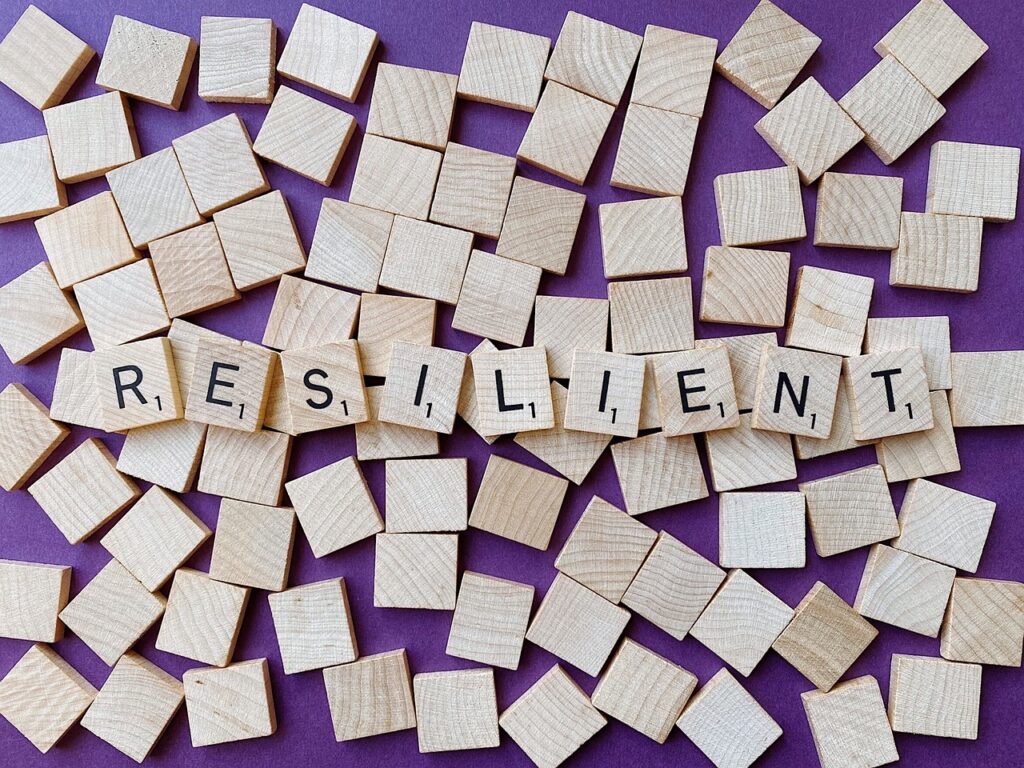Resilience refers to both the process and the outcome of successfully adapting to difficult or challenging life experiences, according to the definition from the American Psychological Association (APA).Resilience means having the mental, emotional, and behavioral flexibility and ability to adjust to both internal and external demands. “It’s your ability to withstand adversity and bounce back and grow despite life’s downturns.
Life is a beautiful journey full of challenges, but it is how we choose to respond to them that will define our growth and well-being. In this, self-resilience helps one to spring back from setbacks, adapt to the upcoming changes, and keep going, regardless of the adversities. It has wide importance in ensuring one’s emotional normalcy, mental strength, and overall good health. This article explores some of the important strategies to reinforce you self-resilience in life.
Understanding Self-Resilience
Self-resilience is not the avoidance of such conflicts; it is about making the ability to go through them. It involves mental toughness, emotional regulation, and a growth mindset. A resilient person sees challenges as opportunities to learn rather than insurmountable hurdles.

To understand resilience requires understanding yourself in terms of the strength and weakness, identifying opportunities you have, how you can utilize them to enhance your resilience and finding solutions to the life `challenge’s .in fact people differ how they cope with stress and life`s shocks .some people are naturally resilient which helps them to stay grounded. No matter the magnitude of problem, because they do not allow their self-get carried away the circumstances instead they try to control their selves and let it go. While others have difficulty in managing their emotion, which lead to more, stress and fall into deep vulnerabilities.
Types of the resilience
The word resilience is often used on its own to represent overall adaptability and coping, but it can be broken down into categories or types:
Psychological Resilience
Psychological resilience is an adaptation in a person’s psychological traits and experiences that allows them to regain or remain in a healthy mental state during crises/chaos without long-term negative consequences. It is difficult to measure and test this psychological construct because resilience can be interpreted in a variety of ways. Most psychological paradigms (biomedical, cognitive-behavioral, sociocultural, etc.) have their own perspective of what resilience looks like, where it comes from, and how it can be developed.
Emotional Resilience
How people cope emotionally with stress and adversity varies from person to person, according to the Children’s Society. Some people are, by nature, more or less sensitive to change. A situation can trigger a flood of emotions in some people and not in others. Emotionally resilient people understand what they are feeling and why. They are able to manage external stressors and their own emotions in a healthy, positive way.
Physical Resilience
Physical resilience refers to the body’s ability to adapt to challenges, maintain stamina and strength, and recover quickly and efficiently. It is a person’s ability to function and recover when faced with illness, accidents, or other physical demands. Research shows that physical resilience plays an important role in healthy aging, as people encounter medical issues and physical stressors. Healthy lifestyle choices, connections with friends and neghbors, deep breathing, time well spent to rest and recover and engagement in enjoyable activities all play a role in physical resilience.
Community Resilience
Community resilience refers to the ability of groups of people to respond to and recover from adverse situations, such as natural disasters, acts of violence, economic hardship, and other challenges to the group as a whole.

Strategies to Enhance Self-Resilience
1. Cultivate a Positive Mindset
A positive mindset can assist you to stay optimistic, deal with problems in a sophisticated way, while curbing and reframing negative thoughts. Because it is not the same when you are problem focused. Definitely, you attract more problems due to overwhelming stress leading to losing focus. On the contrary the solution focused mindset influences you to navigate some of the predicaments ,by remaining calm and becoming fully aware of one`s emotions.one of the ways to cultivate positive mindset is to appreciate what you have the good things-the good side of your life as well as opportunities instead of looking at what others have. Practicing gratitude uplifts the stress, increases the contentedness hence building a good relationship with God. Practicing gratitude also can be acknowledging the progress even if it`s small. Constantly supporting yourself and inspiring yourself through efforts of self –improvement while celebrating the minor wins guides’ through you the way of greater success.

.2. Develop Emotional Intelligence
Emotional intelligence refers to the ability to identify and manage one’s own emotions, as well as the emotions of others. Emotional intelligence is generally said to include a few skills: namely emotional awareness, or the ability to identify and name one’s own emotions; the ability to harness those emotions and apply them to tasks like thinking and problem solving; and the ability to manage emotions, which includes both regulating one’s own emotions when necessary and helping others to do the same. To develop emotional intelligence there some techiqinques can help you, such as mindfulness, deep breathing and journaling. This can help you regulating your emotions and responds the stress constructively.

3. Build Strong Social Connections
Humans are social beings, and building strong relationships and social connections is an essential aspect of well-being. While it`s easy to be caught up in our daily routines and forget the importance of social interaction, research shows that social connections are key to happiness, health, and longevity. One of the most significant benefits of building strong relationships is the reduction of stress and anxiety. Studies have shown that social support can help to alleviate the negative effects of stress, lowering cortisol levels and improving overall well-being. Having a strong social network can also provide a sense of security and comfort during challenging times, reducing anxiety and promoting a more positive outlook on life.

4. Strengthen Problem-Solving Skills
While resilient individuals may have proactive ways of looking at problems, they unfix them into smaller and easily manageable steps, brainstorm possible solutions to overcome obstacles, and tackle all such things with utmost confidence. Effective problem-solving abilities are priceless; however, in many cases, resilience while doing it is what makes the great ones stand apart. This is mainly done by building up healthy amounts of stress management habits, and they work towards higher overall resilience.
5. Practice Self-Care
Self-care may be defined by the term itself — caring for yourself. It includes anything you do to keep yourself healthy — physically, mentally and spiritually. Although prioritizing self-care may sound like common sense, especially if you’re considering longevity, it’s often the first thing to go when you find yourself in challenging situations, whether because of bad health, a financial crisis, job loss, divorce or another significant life event. This is why it is important to keep it top of mind and not an after-thought, especially in challenging times. Physical health directly influences mental resilience engaging in activities like regular exercise, getting enough sleep and eating nutritious meals can enhance your physical health, boost your energy levels and strengthen your immune. In addition, improve emotional stability and enhance the ability to cope with stress.
6. Embrace adaptability
When life faced with inevitable difficulties having resilience to stand up and meet new challenges is imperative. Life is inconsistent and unpredictable. Being flexible and adoptable aids in adjusting to new circumstances. Being open to change and learning new skills ensures plasticity in handling unexpected situations.
7. Foster a Growth Mindset
A growth mindset is a belief that you can develop your skills and talents through hard work, the right strategies, and guidance from others. Be certain of that skills and abilities can brush up with effort to forge resilience. Take challenges as learning experiences, and do not be scared of failure—it is a stepping-stone to success.

8. Set Realistic Goals
Having visible goals provides you with a sense of direction and purpose in life. In alignment with your values and vision, you become more conscious of yourself. Prioritize tasks, stay organized, and track progress to stay motivated and maintain resilience.
9. Seek Professional Help When Needed
There is no disgrace in seeking support from a therapist or counselor. Professional guidance can offer guidance and techniques to foster resilience and prevail over personal obstacles.

In nutshell
Enhancing self-resilience is a continuous and steady journey of growth and self-improvement. By embracing and thriving a positive mindset, building strong relationships, and practicing self-care, you can promote resilience and face life’s challenges with courage and confidence. Get under the way of implementing these strategies today and take control of your emotional well-being.

